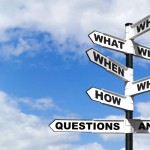 Over the years there have been numerous stories highlighting the generally poor record so called experts have in predicting major events looming on the horizon.
Over the years there have been numerous stories highlighting the generally poor record so called experts have in predicting major events looming on the horizon.
For the past few years a competition has been run by the Intelligence Advanced Research Projects Activity (IARPA) whereby university teams are invited to try and improve the art of forecasting major global events.
One of the most successful entrants has been the team from Wharton. Barbara Mellers led the team and she believes their success is down to a number of factors.
Recruiting horizon scanners
First up, the Wharton team recruited a team of over a thousand forecasters from places such as professional bodies, research institutions and even blogs (although not this one I should add).
Every two weeks this pool of people were asked questions that elicited their thoughts on various events, which they input on the projects website.
The team ran a series of experiments to try and improve the forecasts from the collective. Three core factors emerged from these experiments.
- Training on how to make good predictions helped
- Working collectively rather than independently was also found to support good predictions
- Tracking performance was also useful, as it allowed ‘super teams’ to be born of the best forecasters, with the best performers driving each other on even more
How to make better predictions
Of course, predictions aren’t just the preserve of those involved in large geo-political issues. They’re important for organizations hoping to stay abreast of a changing world, and they’re important for all of us as individuals who wish to retain an edge in our careers.
The Wharton team believe their success can help both groups to make better predictions. It’s perhaps not surprising that I agree with the importance of horizon scanning for both individuals and organizations, and that training is a good way to help both to get up to speed.
A use case for enterprise social networks
Interestingly, the team found that sharing information online was paramount to their success because it allowed sharing to work in an open environment that wasn’t dominated by a single figure.
People could log on whenever they wanted and post in an asynchronous way, which the team believe is less likely to foster groupthink.
Who makes the best horizon scanner?
The Wharton experience suggests that the best forecaster/horizon scanner tends to be smart and open minded. They also tend to be analytical and take a more scientific view of the world. They’re able to look at a question from multiple angles and will explore probabilities in a granular fashion.
Are you interesting in improving the capabilities of your own organization in this way?
If you want to test your own forecasting skills by the way, you can sign up for a public competition here.
I suppose a good place to start is to do this in the first place. I dare say it's an afterthought for many organisations (and individuals)